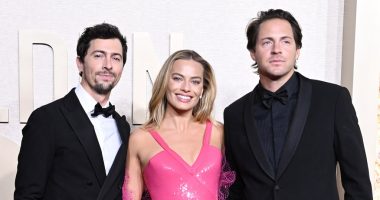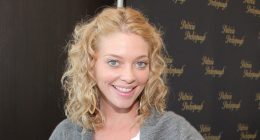
Across much of corporate America, it’s taken almost for granted that things have been “getting better” for racial minorities: that there are more Black voices in positions of influence than there ever have been; that diversity and inclusivity are more prized than ever; that every generation of trailblazers and role models begets the next; that no matter how unjust things remain, they’re still better than they were three or four decades ago. And sure, some of it might even be true.
But there’s a special frustration to being told all this when you can see with your own eyes that it isn’t always the way things are, to being instructed to just wait your turn, to gritting your teeth in the meantime. Hulu’s The Other Black Girl, set largely in the lily-white territory of book publishing, taps into that tension with every genre in its toolbox — it’s a workplace drama and a scathing satire and a twisty horror story, all braided together into one wildly entertaining package.
The Other Black Girl
The Bottom Line A delicious mix of horror, satire and office politics.
Developed by Zakiya Dalila Harris and Rashida Jones from the former’s hit 2021 novel, The Other Black Girl opens on an intriguingly sinister note. In 1988, a terrified young woman flees from her office to the subway. We’ll learn in short order that this is Kendra Rae Phillips (Cassi Maddox), Wagner Books’ first Black female editor, and a little while later that whateverhappened to her next, no one much likes to talk about it. First, though, the series skips ahead to 2023, where a different young woman rides the subway to the very same office. On the way to her cubicle each day, editorial assistant Nella (Sinclair Daniel) passes Kendra Rae’s framed portrait on a gallery wall of past editors. Hers is still the only Black face among a sea of white ones.
So it’s with excitement that Nella greets Hazel (Ashleigh Murray), the newly hired editorial assistant and the only other female Black employee she’s encountered in her two years with the company. As suggested by its title, The Other Black Girl positions the dynamic between them front and center, with an eye for the ever-shifting inflections of admiration, jealousy and suspicion crackling between them. (Not for nothing, Harris has named her heroine after Passing author Nella Larsen.) Initially, Nella is simply thrilled to have a natural ally, someone she can dish to about office gossip or commiserate with about needy bosses or supposedly well-meaning white colleagues who “forget” to credit their ideas in meetings. They have the same complaints, the same goals, even the same favorite author: Diana Gordon (Garcelle Beauvais).
But it’s not long before Nella starts to realize that Hazel is natural competition as well, and one whose confidence at Wagner already seems to outpace her own. Daniel can stuff an entire monologue’s worth of mixed emotions into a single underplayed reaction shot — and she often needs to, because Nella spends much of her work hours biting back how she really feels. By contrast, Hazel looks right at home. She sweet-talks her way into fancy industry parties and wins over co-workers with treats from the famed Harlem bakery that, she claims, made her grandparents’ wedding cake. That a lot of this is bullshit seems to bother her not at all. “Sometimes you just have to be the person they want you to be,” she says with a laugh after admitting she made up the cake’s flowery backstory.
The lie is of no real consequence. The justification, however, snags something in Nella’s brain — particularly as she starts to question if there might be something more ominous lurking beneath Wagner’s touchy office politics. She starts seeing things: flickering lights, reflections of another woman’s face in her computer screen, a stranger who seems to be stalking her. She receives an anonymous note that might be a threat, or perhaps a warning. Is Hazel kind, she begins to wonder, or is she suspiciously kind? (Nella’s hilariously gung-ho bestie, Malaika, played by Brittany Adebumola, is sure it’s the latter.) The trick of Murray’s performance lies in how deftly she walks the line between the two interpretations, even as Nella’s suspicions grow to become “Kanye-level wild.”
The Other Black Girl never gives itself over to full-bore horror, preferring to stay on the lighter side of the comedic-creepy spectrum. But like Get Out, which is name-checked late in the season, it’s dialed into both the absurdity and the danger of being Black in a white world. Its wackiest turns are born of the real and relatable exhaustion stemming from years of trying to live up to a mold never built for you in the first place. Trying to transform the system from within has its potential upsides, but also its clear downsides. Nella’s favorite book, Diana Gordon’s Burning Heart, is an artistic triumph that single-handedly inspired her to get into the business of publishing novels for a new generation of “nerdy little Nellas.” It’s also, she learns through conversations with its author, the product of bitter compromise between artistic integrity and marketability.
The series’ sympathies lie more closely with those who dare to consider burning it all down — like activist Jesse (Langston Kerman), who’s smug but not wrong when he asks if Wagner would ever work as hard for Nella as she’s doing for them. The tantalizing possibility of revolution goes under-explored in season one; the 10 half-hour episodes resolve the biggest mysteries, but leave enough plot threads dangling to irritate those who prefer their answers more clear-cut. (Or to set up a possible season two.) But The Other Black Girl isn’t really interested in tidy solutions anyway. “Black people are allowed to be messy now,” Nella tells Diana, citing the work of Shonda Rhimes. She could have been referencing this series. The pleasure of The Other Black Girl lies in its willingness to take big swings, by all appearances unbothered by the pressure to be anything other than whatever it wants to be.
Source: Hollywood









